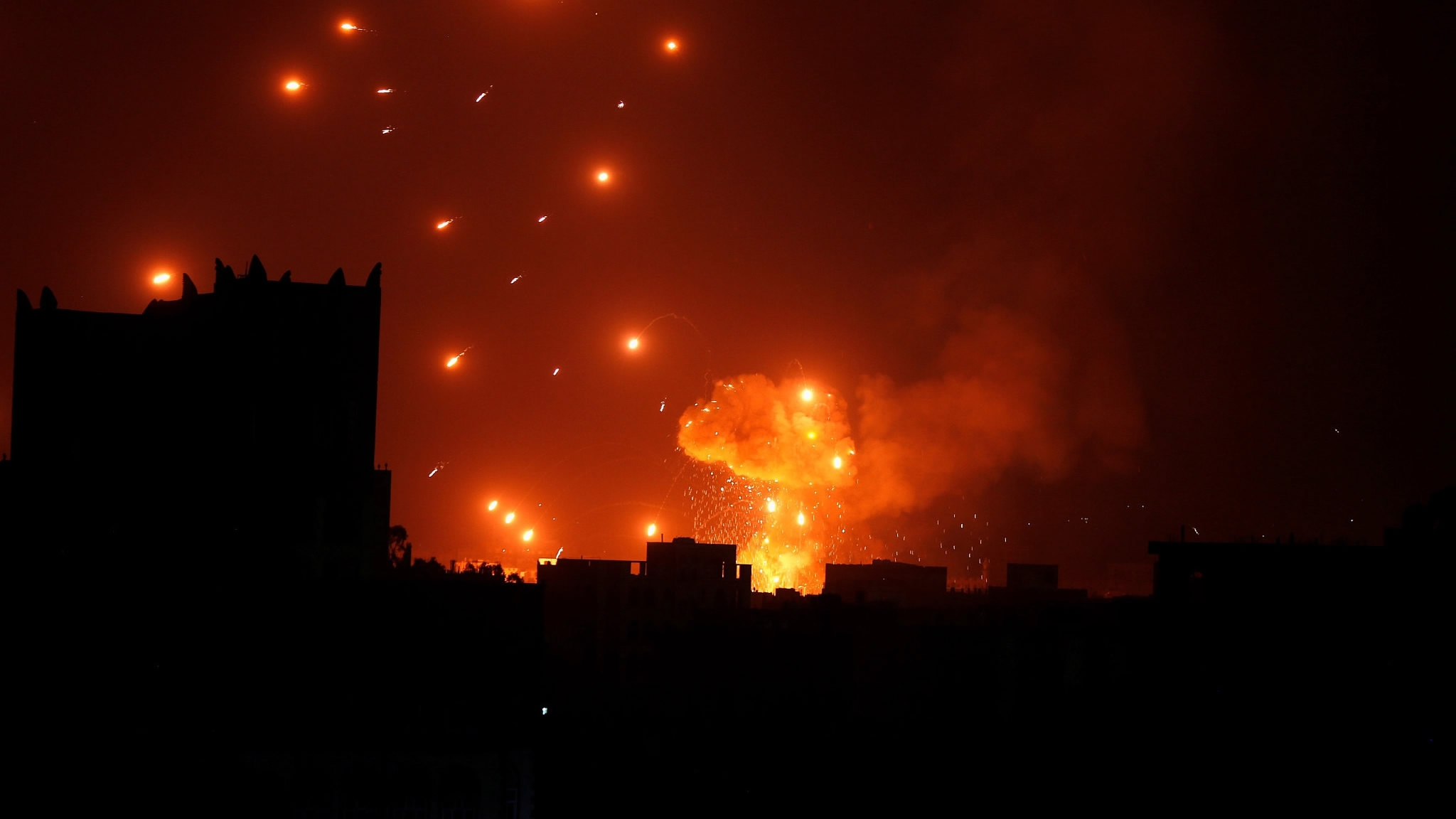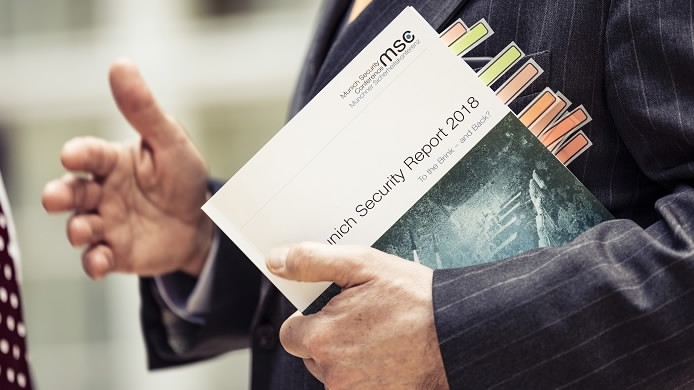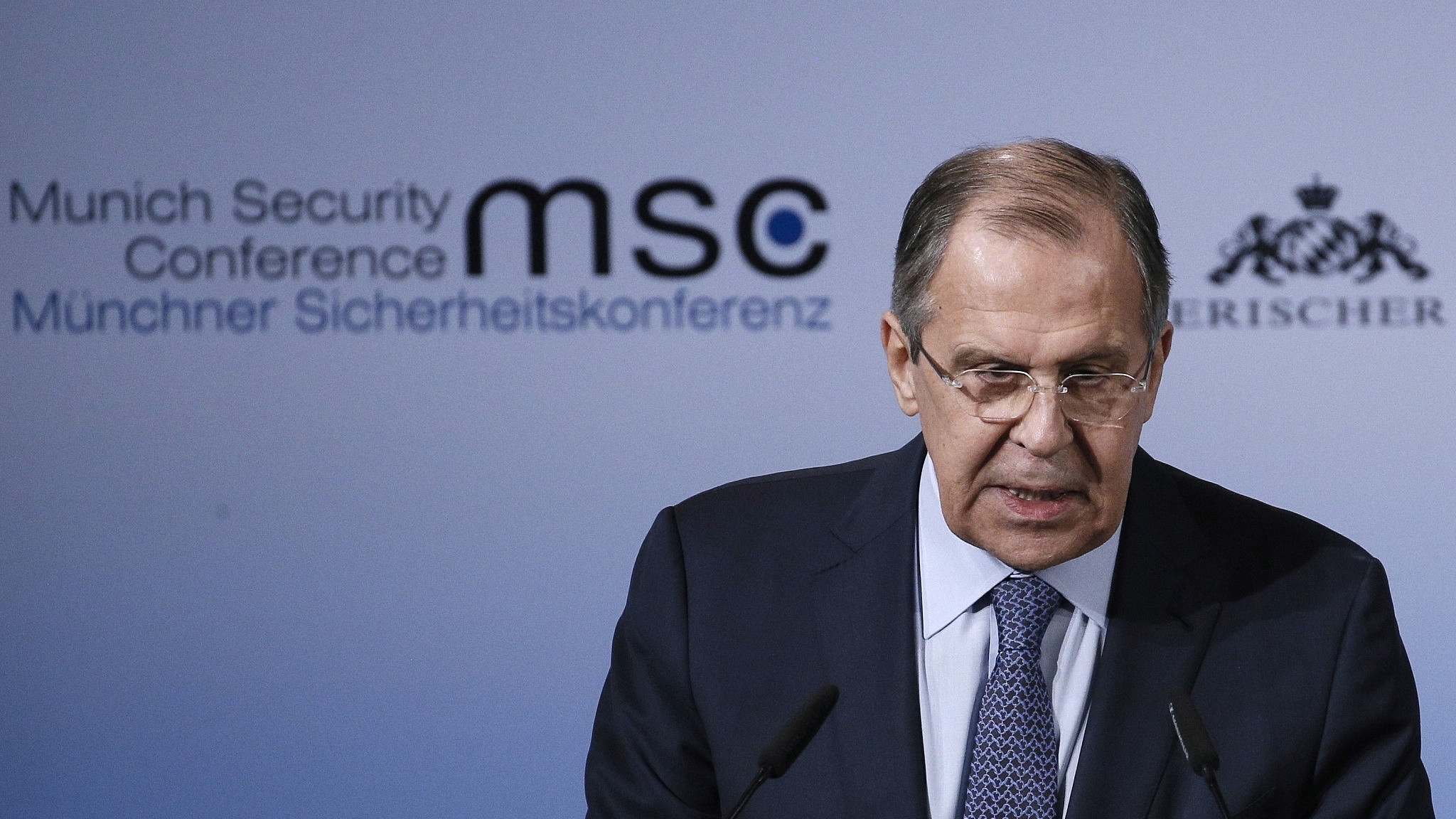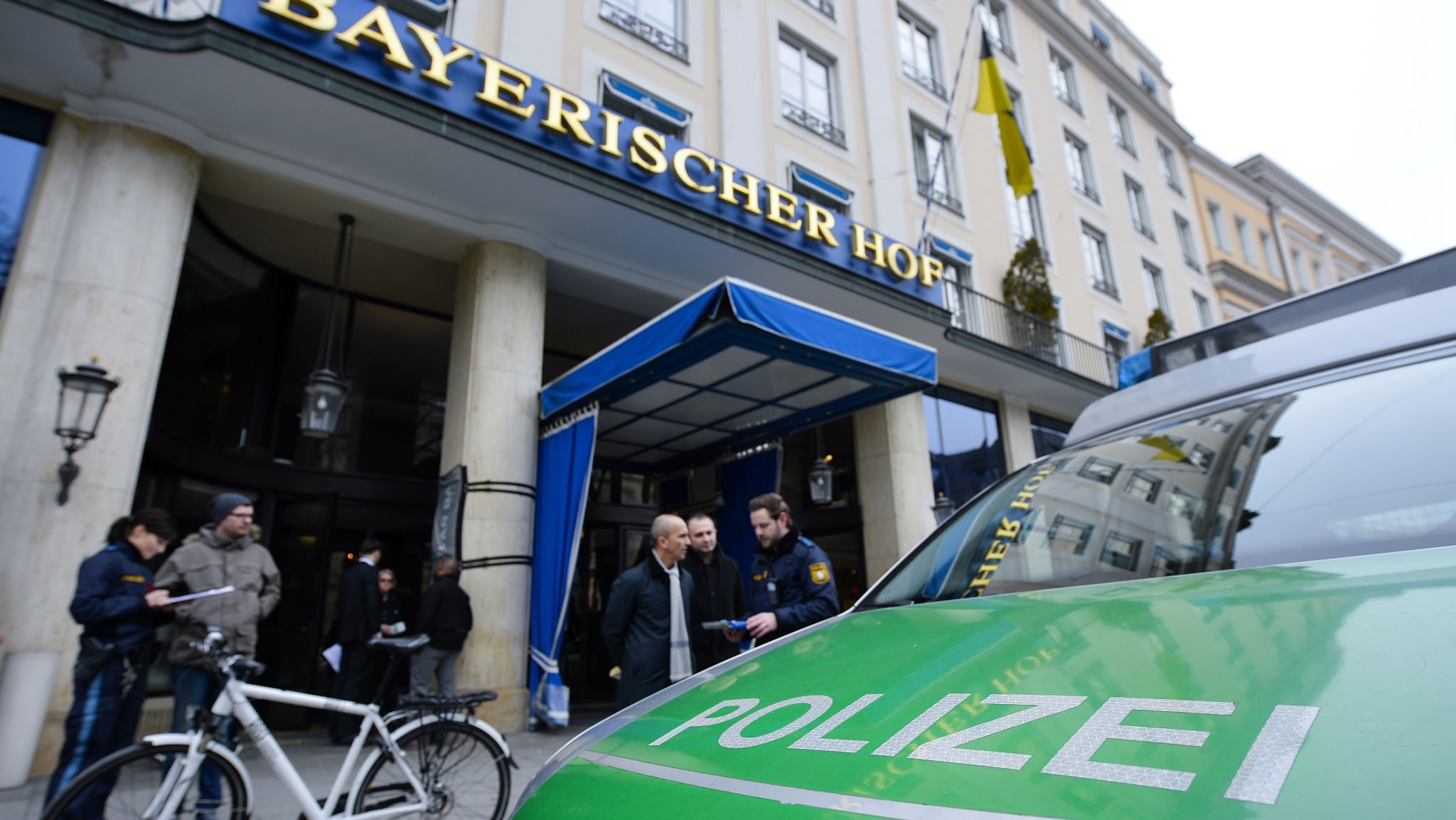
Politics
11:55, 16-Feb-2018
‘World on brink’ warning as security chiefs meet in Munich
By John Goodrich

The world’s most prominent forum for geopolitical discussion gets underway in Munich on Friday, after a year in which security experts warn global tensions have driven the world to the brink of a significant conflict.
The Munich Security Conference (MSC), described by Politico as a “thinking person’s” Davos, will attract powerbrokers from across the world to discuss issues as diverse as EU security, the conflicts in Syria, the stalemate in Ukraine, and "rising nationalism and illiberalism.”
Why does it matter?
The Munich Security Report, published a week ahead of the event, put context to the highly-anticipated discussions between senior political, military and intelligence leaders.
“To the Brink – and Back?” paints a picture of a world on the edge of a major flashpoint.

Munich Security Conference Photo
Munich Security Conference Photo
"In the last year, the world has gotten closer – much too close! – to the brink of a significant conflict," wrote MSC Chairman Wolfgang Ischinger, noting tensions on the Korean Peninsula, the rivalry between Saudi Arabia and Iran, and the strained relationship between NATO and Russia.
Read more: Europe-Russia clash warning
"The escalating rhetoric of individual decision-makers is a very disconcerting development,” Ischinger added. “Whether on the Korean Peninsula, in the Persian Gulf or in Eastern Europe – just a single wrong decision taken in this charged situation could quickly trigger a dangerous chain reaction.”
The assessment was echoed by US Director of National Intelligence Dan Coats, who will also be in Munich, on Tuesday. "The risk of interstate conflict, including among great powers, is higher than at any time since the end of the Cold War," he told the Senate Intelligence Committee.
What’s on the agenda?
The MSC 2018 official agenda highlights the future role of the European Union as a global actor and its relations with Russia and the United States as the central theme of the conference.

Russian Foreign Minister Sergei Lavrov addresses the 53rd Munich Security Conference on February 18, 2017. /VCG Photo
Russian Foreign Minister Sergei Lavrov addresses the 53rd Munich Security Conference on February 18, 2017. /VCG Photo
The guest list points to high-level discussions on Syria – foreign ministers from Russia, Turkey, Iran will be in attendance as well as UN Special Envoy Staffan de Mistura and a high-level US delegation – and there will likely be intrigue surrounding under-fire Israeli Prime Minister Benjamin Netanyahu’s visit to the conference.
Read more: Global risks in 2018
The role of Russia in the world is expected to be in focus, with Ukrainian President Petro Poroshenko scheduled to attend. Former NATO chief Anders Fogh Rasmussen, an adviser to Poroshenko, will call for 20,000 UN peacekeepers in eastern Ukraine, according to Reuters. Talks between Germany, France, Russia, and Ukraine on the situation in Ukraine are expected to take place on the sidelines of the Munich conference.

Fu Ying, chairwoman of the Foreign Affairs Committee of the National People's Congress of China, addresses the Munich Security Conference on February 13, 2016. /Xinhua Photo
Fu Ying, chairwoman of the Foreign Affairs Committee of the National People's Congress of China, addresses the Munich Security Conference on February 13, 2016. /Xinhua Photo
Fu Ying, chairwoman of the Foreign Affairs Committee of the National People's Congress of China, is scheduled to take part in a panel discussion on nuclear security. Former US vice president Joe Biden, rumored to be planning a White House bid in 2020, will also be in attendance.
Read more: Elections and hotspots in 2018
British Prime Minister Theresa May is set to address her country’s post-Brexit security challenges and ambitions in a keynote speech, while cybersecurity and climate change will also be under the microscope. The Munich Security Report warned that climate change will act as a “threat multiplier,” fueling conflict and displacement.
The Middle East and political developments in the Sahel region are due to be discussed, as well as arms control issues such as the DPRK’s nuclear weapons program.
Who’s on the guest list?
The MSC is about substantive discussion, and the guest list reflects the seriousness of the issues at hand. Hundreds of government, military and NGO representatives are expected to attend in 2018, including:
Presidents and PMs
Haider al-Abadi (Iraqi prime minister), Theresa May (British PM), Benjamin Netanyahu (Israel PM), Binali Yildirim (Turkish PM), Petro Poroshenko (Ukrainian president), Paul Kagame (Rwandan president), Sebastian Kurz (Austrian chancellor), Sheikh Tamim bin Hamad al-Thani (Emir of Qatar).
Foreign ministers
Mohammad Javad Zarif (Iran), Adel al-Jubeir (Saudi Arabia), Sergei Lavrov (Russia), Mevlut Cavusoglu (Turkey), Federica Mogherini (EU foreign policy chief).
Intelligence and military
Jens Stoltenberg (NATO secretary-general), Jim Mattis (US defense secretary), H.R. McMaster (US national security adviser), Mike Pompeo (CIA director), Dan Coats (US national intelligence director), Alex Younger (director of the British Secret Intelligence Service), Yossi Cohen (director of Mossad), Bruno Kahl (president of the German Federal Intelligence Agency), Jurgen Stock (director-general of Interpol), Curtis Scaparrotti (NATO’s Supreme Allied Commander Europe).
Other notable attendees
Fu Ying (chairwoman of the Foreign Affairs Committee of the National People's Congress of China), Antonio Guterres (UN secretary-general), Jean-Claude Juncker (EU commission president), Kofi Annan (former UN secretary-general), Christine Lagarde (IMF managing director), Joe Biden (former US vice president), Sergey Kislyak (former Russian ambassador to US), Jim Yong Kim (World Bank president), Staffan de Mistura (UN special envoy on Syria), John Kerry (former US secretary of state).
MSC history
The MSC has taken place annually since 1963. It was founded as an exchange between American and German officials during the Cold War and was initially focused on the role of NATO and cooperation with the US.

A police car stands in front of the hotel Bayerischer Hof, the location for the upcoming 54th Munich Security Conference, in Munich, Germany, on February 15, 2018. /VCG Photo
A police car stands in front of the hotel Bayerischer Hof, the location for the upcoming 54th Munich Security Conference, in Munich, Germany, on February 15, 2018. /VCG Photo
After the collapse of the Soviet Union, the forum’s purpose was questioned, but with the rise of global terror networks and retaliatory action by Western powers in the Middle East, the MSC developed into a global event covering a wide range of security issues. It now attracts leading figures from across the world – including former adversary Russia.
Read more: NATO in history: Purpose and evolution
The 54th Munich Security Conference 2018 will take place from February 16 to 18.
7761km

SITEMAP
Copyright © 2018 CGTN. Beijing ICP prepared NO.16065310-3
Copyright © 2018 CGTN. Beijing ICP prepared NO.16065310-3